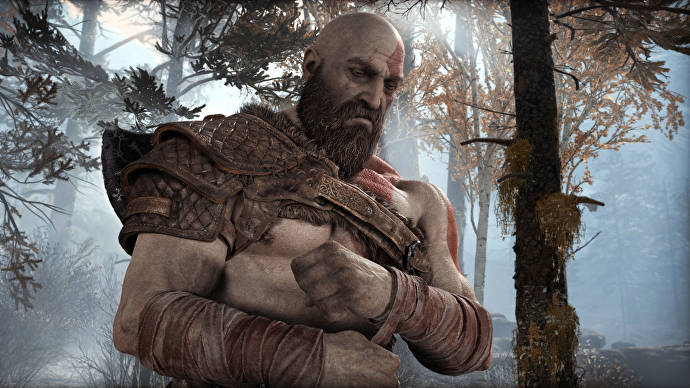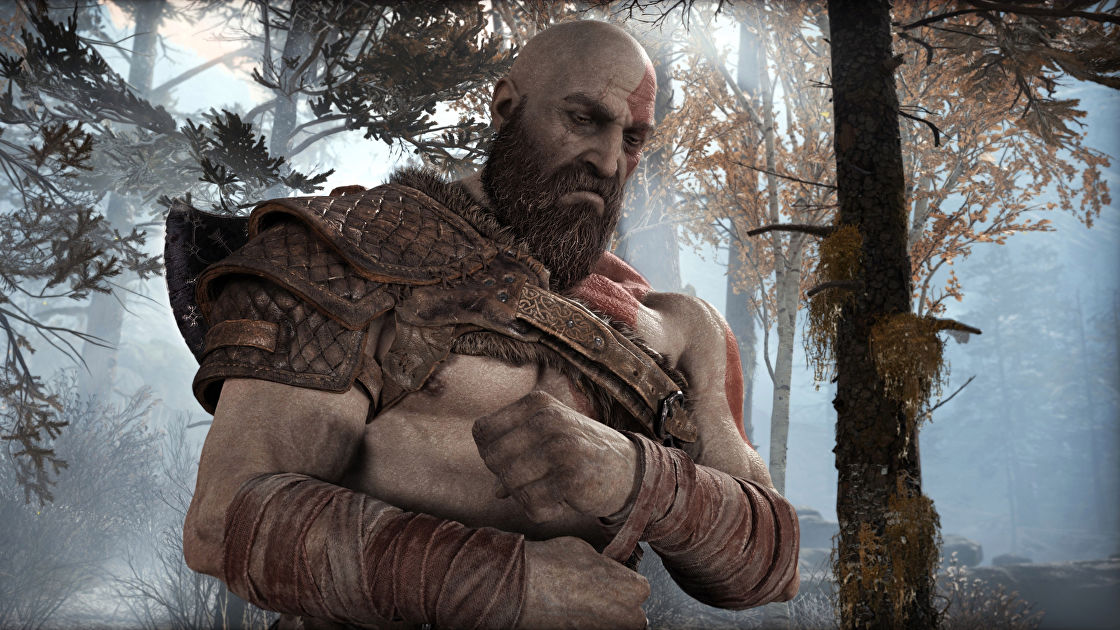The throughline between God of War (2018), Persona 5, and even smaller titles like Loop Hero, may not be immediately apparent, but each of these games have a vital component in common: defying and ultimately killing gods/divine beings. Despite being fairly different experiences, each of these games includes this violent Promethean rebellion because the notion of challenging divinity is deeply human.
Gods are a key part of human cultures stacross the globe. From ways to explain natural phenomena and disasters, to figures of hope, faith, or even vengeance in crisis, gods have been a cornerstone of how we navigate the world and our communities for centuries. They are also a means to organize life’s power structures, and to understand our relative smallness in the universe. But the thing about humans is, we don’t like to be small.
Pyramids, skyscrapers, obelisks, we love to make ourselves larger than life through our monuments and cityscapes. For better or worse, there is a tendency amongst humans to challenge our smallness and make an impact on the world around us, often in a very physical way. It makes sense then, that in the face of gods that wish to reinforce human smallness, human weakness, that the protagonists of these games would also want to challenge that ideologically and physically.
In God of War (2018), Kratos desperately wants to hang onto the humanity he has slowly reclaimed over the years he spent with his new family in a new land. The game seems to emphasize that that humanity lies directly in his ties to his family, though his skills in this department are still severely lacking after all this time.
But the parts of Kratos as a man that shine through almost alarmingly well are his weakness, his rage, and his almost petty defiance in the face of those who would tell him who he can be. It just so happens that those telling him that are gods. Both past and current incarnations of Kratos have no problem taking these beings on because ultimately our god slayer refuses to be caged in by man or immortal.

The spirit of rebellion in humans doesn’t necessarily have to be as bloody or brutal as Kratos’, as we see in Persona 5. While the game has a litany of problems in its storytelling and politics that tend to undercut it, the game’s overall message is about finding it within you to defy the status quo to make positive change, even if that means fighting a false god for the fate of all humanity. Even when the majority of the public has succumbed to complacency, P5 solidifies the belief that there will always be someone willing to rise up against even the highest odds.
Loop Hero, meanwhile, epitomizes why we rebuild in the face of natural/environmental disaster, in the wake of our mistakes and the mistakes of our establishments. The world in Loop Hero has ended. The Hero, and the other characters they eventually encounter, exist in the circumference of a path surrounded by what is ostensibly the void. Through the process of filling out the borders of this path with memories of the past made real over and over again, the Hero discovers that apparently God destroyed their world, and their efforts to save what’s left are in vain. When faced with the realization that the world’s end is God’s will, the Hero basically says “fuck that.”
The angel that delivers this news cannot fathom why the Hero would feel this way, why they would want to fight against divine fate. The Hero simply states that there’s nothing else they could do. When faced with the end, ultimately, the Hero is only human, and their inclination is to defy their smallness, and they’re willing to fight God and anyone else to do it.
VG247 Latest Articles Feed
Source link
Related Post:
- Atlus is mass recruiting new staff for Persona 6 and the plan is “to surpass” the acclaimed Persona 5
- Modders dethrone CGI to restore glorious FMV in the Myst remake
- God of War Ragnarok: Cory Barlog and Eric Williams on Changing Directors, Why Williams Was Right for the Role
- The Last of Us: Part 2 is better for not giving players what they want | Why I Love
- Total War Troy owners on the Epic Games Store may want to avoid the bundles
- Total War fans are discussing what historical title they want next
- Total War fans discuss whether they want single unit armies again or not
- God of War Ragnarok Director on How the Sequel Will Further Explore Kratos and Atreus’ Story
- New God Of War Release Date Window Delayed, Confirmed For PS5 And PS4
- God of War, Judgment and Nioh 2 Coming to PlayStation Now Tomorrow
